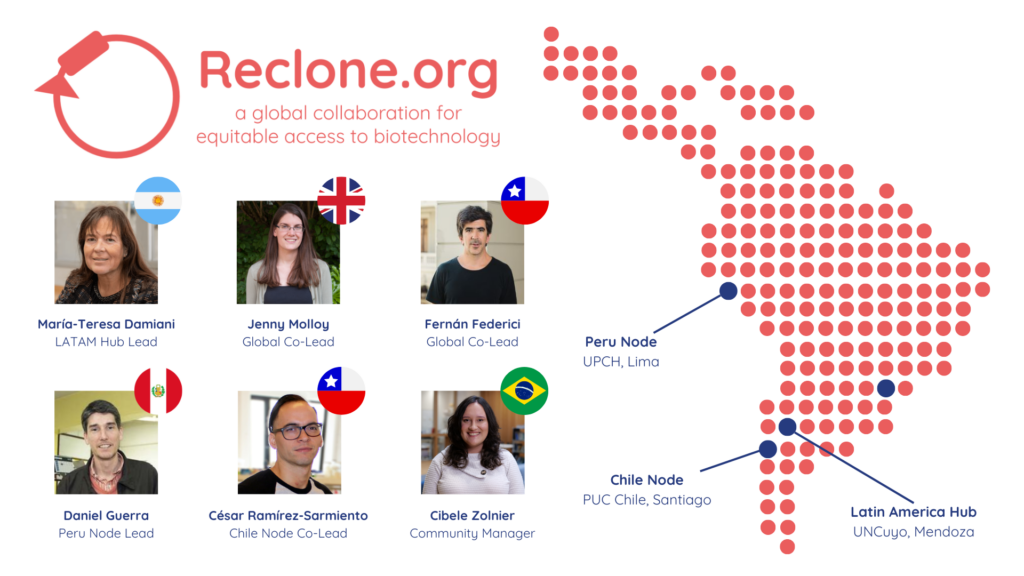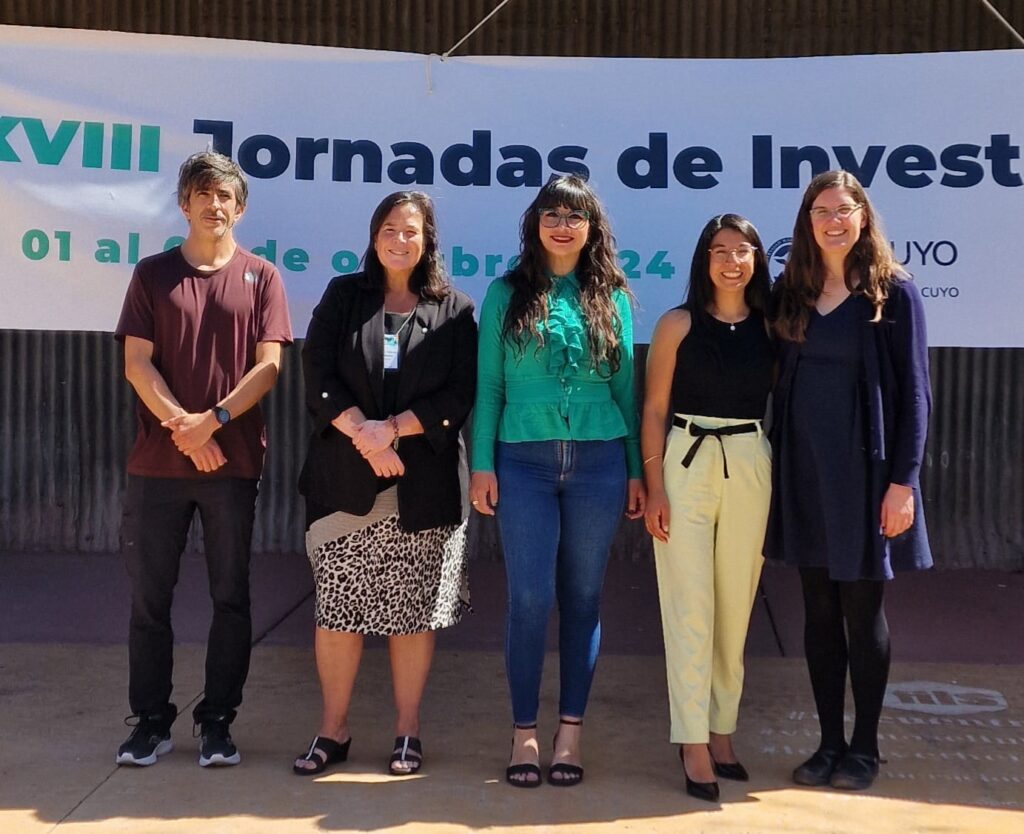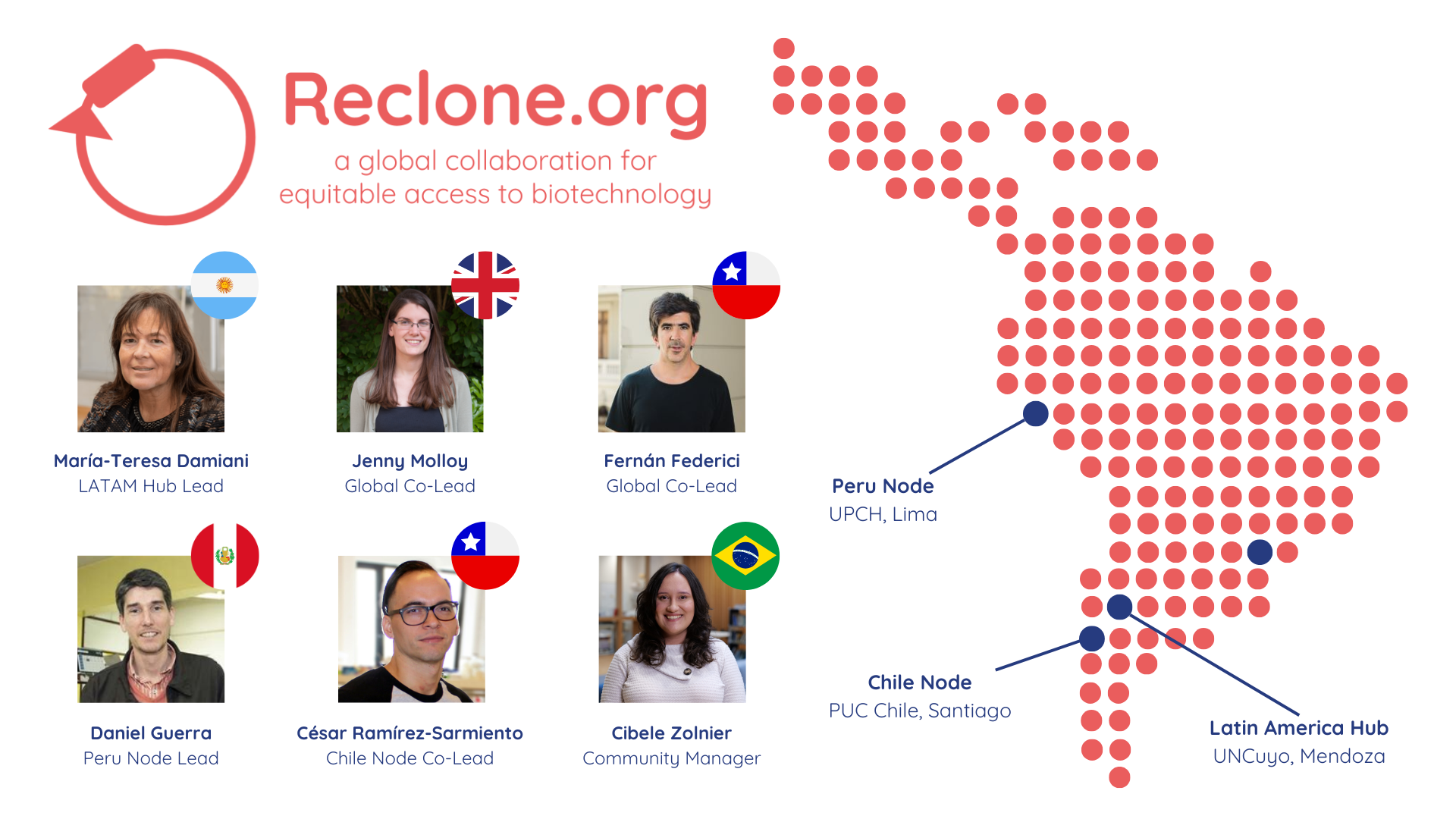The Reagent Collaboration Network (Reclone) celebrates today a major milestone with a two-year award from Chan Zuckerberg Initiative (CZI). This funding will be instrumental in continuing to build its network in Latin America aimed at developing and distributing open biological materials and reagents for biomedical research.
Background
Supply chains for biological tools in Latin America face unique challenges, with costs and delivery times often far exceeding those in higher-income countries. Due to intermediaries, shipping costs, and limited direct access to local distribution, researchers in the region invest considerably more time and funds to obtain essential reagents. Additional barriers such as customs procedures, taxes, and limited local funding add to these costs, creating obstacles to accessing molecular biology materials. These factors contribute to inequities in research capacity, hindering scientific progress and public health response capabilities.
Openly sharing biomaterials could be transformative, especially in supporting local production of research tools and reagents and advancing open science practices. With this approach, Reclone aims to empower Latin American researchers, enhancing both research productivity and public health response across the region.
The Project
Reclone aims to significantly expand its reach and drive positive change in scientific access and innovation across the region, by building a collaborative network of Latin American researchers committed to developing, using and distributing open biological materials. With the support of CZI, the project will begin by strengthening the Reclone Reagent Hub at Universidad Nacional de Cuyo (UNCuyo) in Mendoza, Argentina. Additionally, Reclone will establish new Nodes at Pontificia Universidad Católica de Chile (PUC Chile) in Santiago, Chile, and Universidad Peruana Cayetano Heredia (UPCH) in Lima, Peru.
These hubs will support equitable access to essential biological tools across Latin America by developing and distributing self-replicating open educational resources (OER) using open reagents, delivering training on biomaterial sharing for researchers, universities, technology transfer professionals, and policymakers. This initiative will also foster proactive community building and open new opportunities, such as fellowships and other knowledge exchange mechanisms across Latin America.

In summary, Reclone Latin America proposes to:
- Establish a Reclone Hub at UNCuyo (Argentina) and Nodes in Chile and Peru to build a network for training researchers throughout Latin America;
- Promote the Latin American Reclone Network and advocate the principles of open science, emphasizing the benefits of sharing biomaterials, reagents, and protocols;
- Train Latin American researchers in creating and using open resources for education and biomedical research;
- Generate and share best practices for open biomaterials, encouraging universities across Latin America to adopt institutional policies that support open science tools in biomedical research.
Perspectives
Leading this initiative is Dr. María Teresa Damiani:
I’m thrilled to announce that we are launching the Reclone Latin America Hub at Universidad Nacional de Cuyo in Mendoza, Argentina! Thanks to the support of the Chan Zuckerberg Initiative this ambitious project will expand access to biotechnological tools, empowering innovative biomedical research throughout Latin America. We look forward to fostering the Reclone collaborative network that drives scientific advancements in the region and beyond.
Dr. María Teresa Damiani, Latin America Hub Lead at UNCuyo
Reclone’s founder, Dr. Jenny Molloy is also excited about the perspectives of this grant:
I am delighted that the potential for openly shared DNA toolkits to accelerate biomedical research has been recognized by CZI, and I look forward to Latin America leading the way in developing a scalable model for the global Reclone community.
Dr. Jenny Molloy, Reclone Global Co-Lead at the University of Cambridge

Long-time contributors to Reclone, the leads of the Nodes in LATAM also envision a great impact with this project’s support:
The production of reagents has led to cost reductions of 1 to 2 orders of magnitude, enabling new practical courses and projects that would otherwise have been prohibitively expensive. I hope that this project can help extend these possibilities to other researchers and institutions in the region.
Dr. Fernán Federici, Global Co-Lead, & Dr. Cesar Ramirez, Chile Node Co-Lead at PUC Chile
Access to enzymes has always been a bottleneck for the development of molecular biology and biotechnology in my country. I am excited to think of all the possibilities that colleagues will be able to explore by having a quick and accessible alternative to develop their own ideas without those unfair material restrictions.
Dr. Daniel Guerra, Peru Node Lead at UPCH
As community-building has always been an integral part of Reclone, the grant will also support a dedicated Community Manager for Latin America, Cibele Zolnier, based in Brazil.
The project will be officially launched on November 5th, during an event at UNCuyo focused on open science and digital citizenship, the Conversatorio: Ciencia Abierta y Ciudadanía Digital. The session will happen at 11:40 GMT-3 (14:40 UTC), with a live stream on Youtube: https://www.youtube.com/live/9TIgjIETKnk
This is just the beginning, as the network aims to expand further, creating more nodes and impacting more researchers across the region. Thank you to CZI for their support in helping make these efforts possible!
To learn more about Reclone in Latin America, you can reach out at: latam@reclone.org
About Reclone
The Reagent Collaboration Network (Reclone) was founded in 2020 by researchers in Latin America, Africa, North America, and the UK to convene a community that could address inequities in access to reagents globally, through sharing and partnership. Reclone has since convened five symposia and over 20 community meetings including information on open material transfer agreements and other aspects of open materials. The community has also published ten open protocols via protocols.io and developed an open-source research in diagnostics DNA toolkit for manufacturing key molecular biology enzymes. Latin American researchers have been at the forefront of developing and deploying these open science resources.
About CZI
The Chan Zuckerberg Initiative (CZI) was founded in 2015, by Priscilla Chan and Mark Zuckerberg. The foundation aims to help solve some of society’s toughest challenges – from eradicating disease and improving education to addressing the needs of local communities. Their mission is to build a more inclusive, just, and healthy future for everyone. Across their work in Science, Education, and within local communities, CZI pairs technology with grantmaking, impact investing, and collaboration to help accelerate the pace of progress toward their mission.


